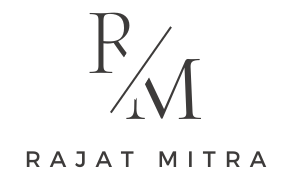Why did the Chief Minister of a State mock, humiliate a film that described the trauma of an entire community? As a Kashmiri Hindu told me he is feeling deeply disturbed after seeing that on television. “I am not finding it easy to shake it down,” she said. Since then, several others have shared feeling a sense of shame and humiliation over the remarks. One of them described it as being driven over the edge and feeling a sense of total despair.
Why did the he feel the need to shame an entire people in public, in the State Assembly – where did this need come from? What is the point of shaming someone, and what effect does it have? Any mature society and its elected representatives need to show their value for dignity, respect and recognition of others if they have to call themselves civilized. If not, isn’t it a proof that this ritual of public shaming, a remnant of medieval barbaric periods, is still with us? Or is it a new movement where the right to assertion of a people is being countered by a State with a desire to shame and humiliate so that their assertion for truth is nipped in the bud?
Public shaming of this movie has put naked power on display. In a State Assembly, by mocking a people’s attempt to tell the world about a truth, the goal is only to bring the people to their knees once again in front of the world. That is what a perpetrator does thinking that is where they belong and from where they should not venture out. This is the mindset that both shames and mocks and history is full of such examples. The assumption is that they can take the debasement and humiliation.
This mocking in the State Assembly raises a very basic question. What is the dignity of a Kashmiri Hindu and why it is being debased? The Indian people failed in 1990 to protect them. A people thrown out by repeated exoduses, gone through debasing slogans and sexual assaults, what does the Kashmiri Hindu deserve from us?
Thomas Friedman, a New York Times journalist, once talked of humiliation as the most powerful and underestimated force of modern politics. He also said how the people respond to it shows how much they are capable of being bent.
Shaming is a frighteningly powerful emotion. The British divided us, created shame and chained us through their innumerable ways of punishment and degradation. The transfer of power did little to change that. All over the world ex colonial societies are trying to remove its shackles. Shaking of shame is the most difficult of all emotions as psychologists know. It is deadly, with a lasting impact on the living. When shame has the power of public gaze, an official sanction, it can get beneath our skin to remind us how we were once powerless making us impotent once again.
For Kashmiri Hindus shame perhaps is one of the most powerful feelings they had to deal with after 1990. Their exodus happened in full public gaze. It was not a private, solitary feeling that they could deal with in the privacy of their homes. The movie The Kashmir Files brings that out very poignantly and this is what makes it so difficult for the perpetrators and their supporters. It has made their ambition naked and for the world to see. So how to hide it? Shame them once again so that they are reminded of their plight and become silent.
The movie The Kashmir Files has given the Kashmiri Hindus and the larger community a civility, a respect and a dignity that they lacked since their exodus. What kind of a man or political leadership would think of mocking practices that enhance it? A history of reading of theory of humiliation in the past would make it very clear.
Michael Foucault talked of shaming and humiliation as the primary tools employed by the State as an attempt to use surveillance of the social body that seems to spin out of control. That is what the movie The Kashmir Files has done with an entire generation. That may be why ‘human dignity’ in present day India, both in political and psychological terms, is becoming a deeply emotionally invested issue and will become more so in the coming decades as a society comes to terms with the ways it has been silenced with shame and humiliation.
The present remarks by the Chief Minister in the State Assembly seems to go in the opposite direction where shaming and humiliation would try to rule us again. If not questioned, it may lead us again to a state where decency, dignity and honour will have no place once again.
Public shaming and humiliation are never used over trivial matters. There is always a far larger picture at stake, the violation of a norm that is important for a larger collective, in this case the perpetrators who would not like any movie, literature closely relating to The Kashmir Files. Mocking those who try it attempts to exclude and remove them symbolically from the larger society, a position that the perpetrator and his supporters want to hold themselves.
Shaming and stigmatizing humiliation is always planned, coordinated and executed in an organized manner. They are neither spur of the moment nor contingent upon individual situation. They follow well thought out scripts and a ritualized structure. Often repeated with a precision, in public spaces, they are easily recognizable. They have an aim of not only creating confusion, violence and mayhem, but also stabilize the existing power structure that seems to be threatened. This has to do by showing the powerlessness of the other. The politics of humiliation is an intentional strategy that is unleashed to retrieve this balance.
The most basic condition in any rule of law country is to hold human dignity and worth of the person as the highest inviolable right and make it the duty of the State to respect and protect it. It is time that we in India look towards enacting a law that condemns and forbids mocking of its own people.
Rajat Mitra
Psychologist, Speaker and Author of ‘The Infidel Next Door’

